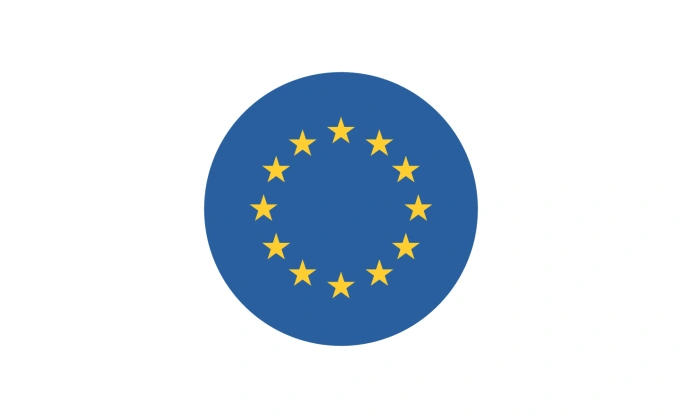How the Instant Payments Regulation will change the EU payments landscape

A major change in European Union payments has arrived as the new Instant Payments Regulation (IPR) comes into force. Here, we explore the details of the IPR, as well as its benefits for consumers and payment service providers (PSPs) – such as increased convenience, more innovation in the market, and reduced costs.
The Instant Payments Regulation (IPR) is a new European Union legislation that requires all payment service providers (PSPs) to offer the possibility to send and receive euro payments within seconds, 24/7, across the EU.
The IPR will bring several benefits, such as increased convenience and speed for users, reduced fees for sending instant payments, enhanced competition and innovation in the payments market, and improved customer satisfaction and loyalty.
The IPR will enter into force on 8 April 2024 and apply in two phases. PSPs will have nine months to comply for receiving instant payments, and 18 months for sending them.
What is the Instant Payments Regulation?
The IPR is a new EU legislation that aims to address the uneven gap of access and reachability for instant payments across the bloc. It will require all PSPs to offer the possibility to send and receive payments in euro within seconds, 24/7, 365 days a year, not only within the same country but also across another EU member state. The regulation also takes into consideration particularities of non-euro area entities.
The IPR will also harmonise the rules and standards for instant payments, ensuring interoperability and security among different payment schemes and systems. It provides more clarity around some of the consumer protection measures, such as the right to a refund in case of an unauthorised or incorrect payment, and the obligation to inform the payer and the payee of the success or failure of the payment in real-time.
What are the benefits of the Instant Payments Regulation for PSPs and consumers?
The IPR will bring several benefits for PSPs and consumers, such as:
Increased convenience and speed for users, who will be able to send and receive euro payments in seconds, anytime and anywhere, using their existing payment instruments and accounts.
It is likely to reduce the fee for users sending instant payments as PSPs will no longer be able to charge a premium for such transactions over and above the rate of a standard SEPA credit transfer.
Enhanced competition and innovation in the payments market, as the IPR will create a level playing field for all PSPs, including new entrants and fintechs, to offer instant payment services.
Reduced costs and risks for PSPs, who will be able to access the payment systems run by the central banks more easily and cheaply, thanks to the amendment of the Settlement Finality Directive (SFD) that accompanies the IPR. The SFD amendment will allow electronic money institutions (EMIs) and payment institutions (PIs) to have direct access to these systems, without the need of intermediaries or correspondent banks. This can also help improve competition as direct access to payment infrastructure will enable non-banks to have greater control over the services they offer customers.
Improved customer satisfaction and loyalty, as the IPR will enable PSPs to offer more value-added services and features to their customers, such as request-to-pay, confirmation of payee, and instant refunds.
When will the Instant Payments Regulation come into force and apply?
The IPR was published in the EU official journal (here) on 19 March 2024, meaning it will enter into force on 8 April 2024. The IPR will apply in two phases, depending on whether the PSP is sending or receiving instant payments. For receiving instant payments, the PSP will have nine months from the date of enforcement to comply with the IPR. This means that by 9 January 2025, all bank-PSPs in the EU will have to be able to receive instant payments from their customers. The second phase kicks in after 18 months on 9 October 2025. At which time, all bank-PSPs in the eurozone will be required to offer their customers the facility to send instant payments.
After this, for bank-PSPs in non-eurozone member states, the deadline for receiving instant payments is 9 January 2027, sending instant payments 9 July 2027.
Non-bank PSPs, such as electronic money institutions (EMIs) and payment institutions (PIs), are also expected to meet the same requirements for receiving and sending instant payments by 9 April 2027.
How did Tink contribute to the Instant Payments Regulation?
Working closely with our colleagues at Visa, Tink is extremely proud of the final text of the IPR. Intervening and responding to various calls for input and collaborating with industry associations, we have helped to shape and table amendments that have been adopted in the final text. The most important changes include:
No introduction of new fees for regular payments to offset costs for instant payments. This means that PSPs will not be able to charge higher fees for non-instant payments to mitigate the removal of their ability to charge a premium for instant payments.
For PSPs, no payee IBAN-name checks (otherwise known as confirmation of payee or "CoP") when the payee details are provided by a PISP. In other words, PSPs can trust that the details provided by the PISP are correct due to obligations upon them.
Obligation to inform the payer and PISP of the success or failure of the payment order execution in real-time. As a result, PSPs will have to provide immediate feedback to the payer and the PISP, if involved, about the outcome of the payment order, which will enhance transparency and trust in the payment service. This will ensure payees are given the needed certainty that a payment has been successful, which is crucial to support commerce-based use cases.
We believe that these amendments will ensure that the IPR will foster the development of a more efficient, competitive, and innovative payments landscape in the EU to finally help realise the true potential of account-to-account instant payments in the region, more than six years since the first SEPA Instant services went live.
If you want to learn more about the IPR and how Tink can help you prepare for or benefit from it, please contact us at commercial@tink.com.
More in Open banking

Smart moves with smart meters: how commercial VRP could support pay-as-you-use billing models
Discover how variable recurring payments can transform smart meter billing into a more flexible user experience – and utility providers more ways to support financially vulnerable customers.

Serving younger borrowers: the impact of inaccessible lending
Streamline risk decisioning as a lender to lower operating costs using data-driven, digital loan origination, affordability assessment and income verification.

The full SPAA treatment – Tink signs up for new EU scheme
Tink has become one of the first participants of the European Payments Council’s SPAA scheme. We explain why SPAA was needed and how it could be the catalyst to transform account-to-account payments in the European Union.
Get started with Tink
Contact our team to learn more about what we can help you build – or create an account to get started right away.
